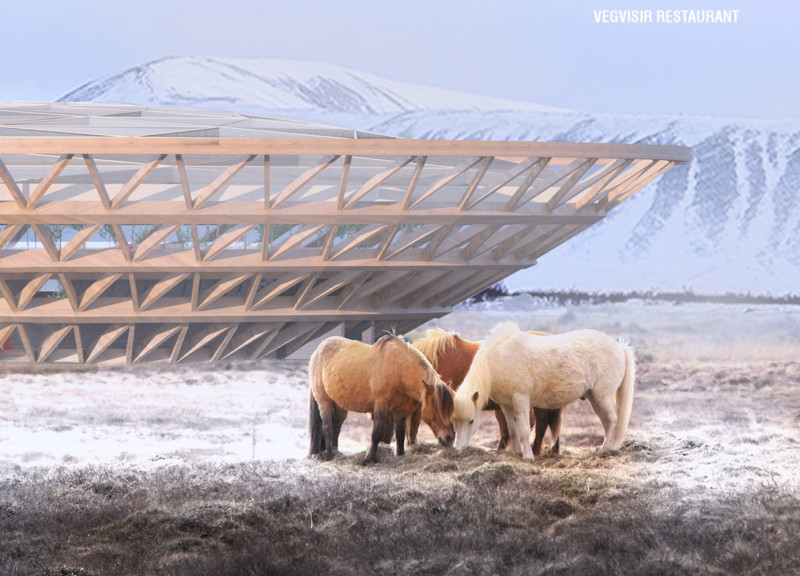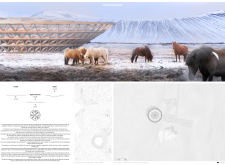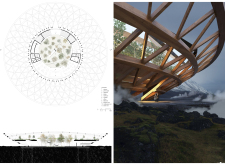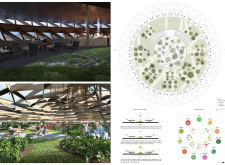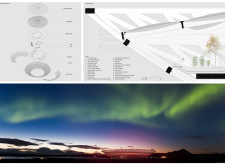5 key facts about this project
The primary function of the Vegvisir Restaurant is to serve as a culinary destination where visitors can enjoy locally-sourced meals while being enveloped in the aesthetic beauty of the Icelandic landscape. The restaurant's design concept is informed by the iconic Vegvisir symbol, a Norse navigational aid, embodying guidance, exploration, and a sense of place. The architectural interpretation of this symbol extends beyond aesthetic values, creating a structure that represents warmth, hospitality, and a commitment to sustainability.
Important parts of the Vegvisir Restaurant's design include its innovative use of materials and spatial organization. The building's primary materials include wood, ETFE (Ethylene Tetrafluoroethylene), concrete, and glass, which are combined to create a structure that is both functional and visually appealing. Wood serves as the foundational material that lends warmth to the interior, while ETFE is used to create a lightweight and flexible façade that allows for plentiful natural light and views of the surrounding landscape. This choice of materials highlights a commitment to ecologically responsible practices, important in the fragile ecosystem of Iceland.
The layout of the restaurant is thoughtfully crafted to emphasize community interaction and enhance the dining experience. The restaurant features open spaces that encourage social engagement, alongside more intimate dining areas that allow guests to enjoy their meals in quiet contemplation. A central courtyard filled with local flora plays a vital role, as it provides produce for the kitchen and serves as a space for patrons to connect with nature. This integration of green elements is a hallmark of contemporary architectural design, further advancing the restaurant’s sustainability goals and creating a more holistic experience.
One unique aspect of the Vegvisir Restaurant is its innovative roofing system, designed to mimic the geometric forms found in Iceland's natural scenery. This sheltered structure optimally manages light and thermal comfort while also facilitating natural ventilation. By using an automated window system, the building adapts to varying weather conditions, reducing energy consumption and enhancing the comfort of both staff and visitors.
The restaurant's connection to local culture is evident in its menus, which focus on seasonal ingredients predominantly sourced from the surrounding area. This farm-to-table approach reinforces the restaurant's commitment to sustainability and fosters a deeper connection between the dining experience and the environment. Additionally, culinary workshops can be held on-site, further promoting local traditions and practices while engaging the community.
The Vegvisir Restaurant stands out due to its thoughtful integration of architecture and landscape, with design elements reflecting the ethos of Icelandic culture. It successfully creates a space that is functional for dining but also resonates on a deeper level with guests through its thoughtful architectural choices. Those who explore this project will gain valuable insights into the architectural plans, sections, designs, and ideas that make Vegvisir a distinct example of contemporary architecture. Visitors are encouraged to dive deeper into the details of this project and appreciate how architecture can merge with nature to produce a meaningful experience.


